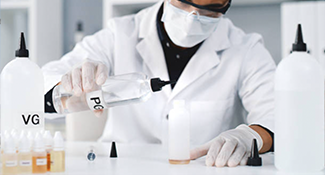The much-vaunted Cole-Bishop Amendment was voted down on Sunday. The Cole Bishop amendment would have grandfathered all vaping products that were on the market on 8/8 last year, and exempted them from PMTAs.
As things stand, then, we're back on the FDA's regulatory countdown; although the countdown was (perhaps not coincidentally) pushed back by 3 months on Monday.
This is not to say, however, that things are the same as they were six months ago. A few things have become clear to me over the last couple of weeks through conversations with people deeply involved in the regulatory process. These elements will shape the contours of how this all plays out over the long-term.
- FDA understands vaping better now
FDA has now met with numerous businesses to conduct the preliminary stages of PMTA applications. Accordingly, FDA knows much more about the products and those involved in making them than they did on 8/8. Relationships are being forged, and primary science is being developed in support of applications. There's a certain fluidity to the process that is opaque, but real.
- The data doesn't lie.
The FDA has two years of PATH data that shows conclusively that there's no "new youth epidemic of nicotine use", despite the protestations of the CTFK, the CDC and the (former) Surgeon General (see below). The only proxy that matters when assessing the impact of vape on any population is daily usage. As I understand it, the PATH data puts this at well under 0.5% of the youth cohort.
Consider this too: It's a trivially true fact that approximately 50% of adolescents who tried cigarettes went on to become daily smokers. Let that sink in a little. 50% - one in two adolescents that tried a cigarette went on to become daily smokers. Then compare with vape. Something's up here.
So, the data shows, in sum, that tobacco usage is rapidly declining amongst adolescents, and vaping is not a displacement and is not contributing to epidemiologically significant rise in nicotine usage.
Please don't feel tempted to link vape with the decline youth smoking. It's really tempting to associate the rise in vape with the decline in smoking (there correlations certainly look compelling). I'm not saying there isn't some disruptive denormalization occurring, but I've my own theory that I think is equally compelling “the impact of smartphones". Think I'm mental? Have a look at this. Still not convinced? Meditate on the social function of smoking, and whether smartphones aren't a perfect replacement (and much less deadly).
- FDA is getting a new boss (same as the old boss?)
Trump's pick for FDA has stated that he wishes to see a regulatory bonfire to enable rapid innovation, unencumbered by red tape. Scott Gottlieb also (somewhat incredibly) was at one point on the board of directors of an eliquid/franchise operation.
You can read that either way for vape. His prior involvement could prove detrimental if he feels he needs to prove his dispassion. But then, he's also associated with some 25 other businesses across the spectrum of FDA-relevancy.
In any case, the FDA has factored in this leadership change (and that at the HSS) into its decision to delay the PMTA track for three months:
"This extension will allow new leadership at the FDA and the Department of Health and Human Services additional time to more fully consider issues raised by the final rule that are now the subject of multiple lawsuits in federal court"
- The surgeon general was sacked: was this because of vape?
Surgeon General, Vivek Murthy, was fired two week's ago, leading numerous commenters to suggest that this was in respect of his Report on E-cigarettes; the international community of tobacco experts criticized this report with unprecedented vociferousness.
The new Surgeon General should revisit this report as soon as possible, withdraw it from publication and republish something based on reality. This won't happen, of course.
- The contours of the industry are changing already
Consolidation was always going to occur in this industry. It always does. There's a certain Darwinist reality concerning any new industry category that, in the cold light of day, regulations only serve to shape and accelerate. In other words do vapers need 7500 vape juices? No, obviously not. Do they need 200? Maybe. Is it better for the market to decide? I think so, yes. The market should decide and some sensible standards should be able to enable this to happen safely.
The PMTA landscape clearly unfairly favours those with access to significant financial and social capital. That's the definition of an elite system, and it's totally not fair or ethical.
- The dangers of making vape a political issue
I say making, but it's already a political issue and has been for years. I attended one of Scott Ballin's (excellent) Morven Dialogue sessions in DC several years ago, and ended up in a surreal episode in which one grandee of US tobacco control shouted at me after an exchange: But pro-vapers are just a bunch of libertarian nutcases. To which I responded, agnostically: Perhaps. But you've got to understand that your lot gave them this one.
It angers me that vape so neatly follows party lines in America. As a Brit, I'm spoiled by the fact that Sir Michael Russell, a man who had deep compassion for smokers, schooled today's upper-echelons of UK tobacco control. Unfortunately, the top brass in the USA were schooled in the tobacco wars of the 80's and 90's.
In any case (and this NOT unique to this issue, of course), the science plays second-fiddle to the politics, and is used and abused by a whole host of people with agendas and/or susceptibility to motivated reasoning. Sad!
Pamela Gorman, of SFATA, put it perfectly in her emailed response to the Cole-Bishop rejection:
"we must not (publicly) blame people who don't understand us. In lobbying, it is important to give people the space they need to come over to your side. We will need to actually change people's minds. This is very difficult, especially with Members of Congress!"
Damn, if we could all just get along.
Ah, yes, but what about:
Executive action?
No comment. Who. Fecking. Knows. (!!)
Other legislative action?
See above, and join SFATA's webinar on Friday. There are several initiatives in play. But see point (6).
Also, the EVCA is canvassing for donations\
Litigation?
Multiple lawsuits are currently wending their way, most notably those consolidated under the Right to be Smokefree Coalition
Any other mechanisms?
Yup, there's a citizens petition doing the rounds. It's a very sensibly worded document that seeks not to overturn the specific regulatory provisions of the Rule, but rather simply to extend the timeframe by which manufacturers must embark on the (very costly) PMTA process.
And the FDA?
Well, we know they're being more "understanding", but they're also being lobbied strongly. We also know they have 50 million pages of PMI's "shock and awe" MRTP to wade through. And we know they have great discretionary authority over the enforcement of their rule.






Leave a comment
This site is protected by hCaptcha and the hCaptcha Privacy Policy and Terms of Service apply.